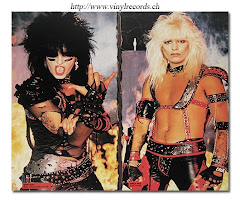Monday, September 28, 2009
Boys N the Hood
Boys N the Hood portrays two conflicting views of masculinity. The first, as demonstrated by Tre's Father, outlines masculinity as being a responsible adult who is educated and takes care of his family. His father tries his best to check Tre before he acts out of line. The most poignant example is when Tre's father takes away his gun and comes down hard about how that is not the right path. Tre is lucky in having a father figure who takes control and does not let him stray into the dangerous lifestyle that his friends lead. The second view of masculinity is best shown by the character Doughboy, a drug-dealing, ex-con whom Don Sabo might describe as "hard," who does nothing during the movie but try to prove his masculinity through violence, ignorance, and objectifying women. This is considered dangerous because it leads towards a life of crime, failed education, and very often death. These two characters are juxtaposed as psychomachia, a devil on one of Tre's shoulders, an angel on the other, influencing Tre in both directions. Masculinity in the african american community, as portrayed in the film, seems to lean towards that demonstrated by Doughboy. I think this speaks to the vicious cycle created by low socioeconomic standing as well as the lack of positive male influences. Women are portrayed in this film as not having any control over their lives or how they are treated. They are for the most part passive and weak. Tre's mother is an example of an "outsider-within." She is the only positive female influence in the movie and she is only on screen for a total of thirty seconds. She made sure to get an education in order to support herself and provide for Tre in ways that the other women in the film would not be able to.
Subscribe to:
Post Comments (Atom)


No comments:
Post a Comment
Note: Only a member of this blog may post a comment.